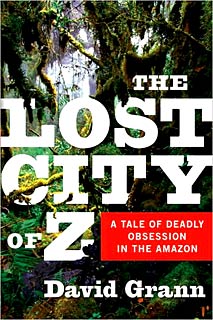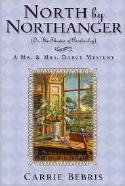This review contains affiliate links, which earn me a small commission when you click and purchase, at no extra cost to you. Thank you for supporting my small business and allowing me to continue providing you a reliable resource for clean book ratings.
I wasn’t sure what to expect when I first picked up The Road by Cormac McCarthy, author of No Country for Old Men. I tend to be very skeptical about any book that openly advertises “Now a Major Motion Picture” on the cover — and I’m especially skeptical about any now-a-major-motion-picture book that has to do with post-apocalyptic society. Too often have decent literary works been reduced to a cinematic ruin, where the most convincing sign of apocalypse is represented through the barren wastes and gaping chasms in the script. Fortunately, I found my skepticism unwarranted and discovered a beautifully crafted story of hope surrounded by darkness.
The first thing I came to realize is that this book avoids several conventions of modern literature — and is better for it. There are no chapters, and only the occasional section break, which allows the story to carry on gently from one paragraph to the next without interruption. This lends itself well to both depictions of monotony as well as terror when time seems to become malleable and inconstant. There are also no quotation marks to set apart conversation, and while this took some getting used to, it helped the dialogue between characters to flow more naturally and informally.
McCarthy’s story follows a father and son who are making their way toward an unnamed coast somewhere in post-apocalyptic America. Not much indication is given regarding exactly what has befallen society — though it seems like some combination of nuclear winter coupled with natural disasters is to blame. Brief glimpses are given into the past through the father’s dreams and memories, but only enough to help us understand his motivations for carrying on with the small boy as his companion.
I noticed from the beginning that paragraphs tend to separate thoughts within the story, and ample time should be taken between each one to digest the idea or scene that has just been presented. McCarthy has an incredible ability to describe a gray and decaying world with some of the most simple and vivid words. The writing is not rushed or haphazard, and each brief sentence carries a full load of meaning. Think of each paragraph break as a small breathing space between images, take your time to fully ingest each section, and then carry on. I found myself doing this, and enjoying the book all the more for it. This book is not an experience that should be rushed.
The boy and his father journey through a bleak wilderness in a continual search for food, shelter, clothing and warmth. The fear of ambush by “the bad guys” is ever-present, but it is obvious that hypothermia and starvation are the true villains of this tale. There are several moments when the thin flame of hope is violently extinguished, only to have it rekindled through small but significant events. But pain is imminent. Hope does dwindle and fade. Do not expect sunny skies and happy endings all around — the story is too true to itself for such indulgences. Just enjoy it for what it is — a story about a father and son doing their best to survive, holding on to the hope they bring each other when the gray world turns to blackness.
Rated: Mild, for a few rare uses of profanity. There is no sex — just a couple of very briefly descriptive memories that are not particularly suggestive. You should expect some not-so-brief and disturbing images that include gunshot wounds, infanticide, and scenes of abject destitution. There are no over-the-top gory descriptions, but there is also no mincing of words in an effort to dance around the reality of the scenes, however brief.
Click here to purchase your copy of The Road on Amazon.




